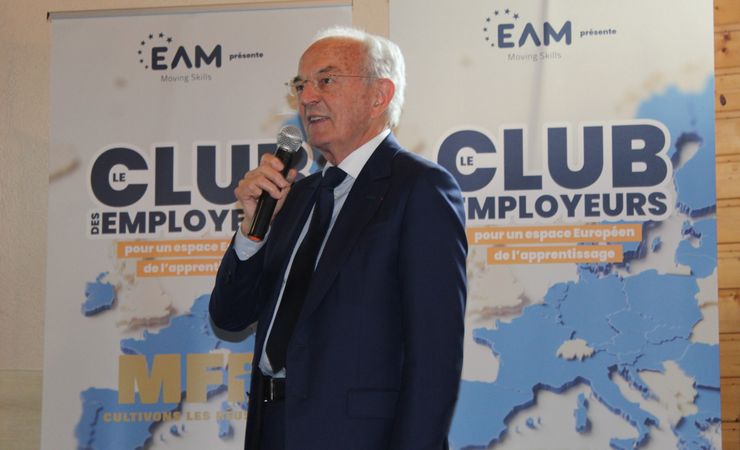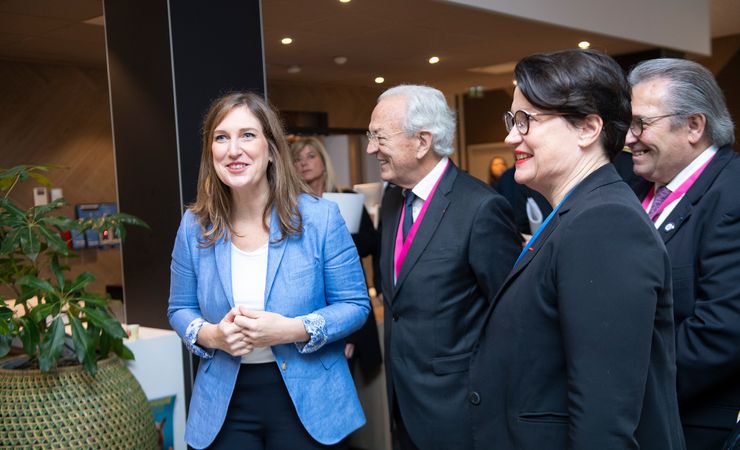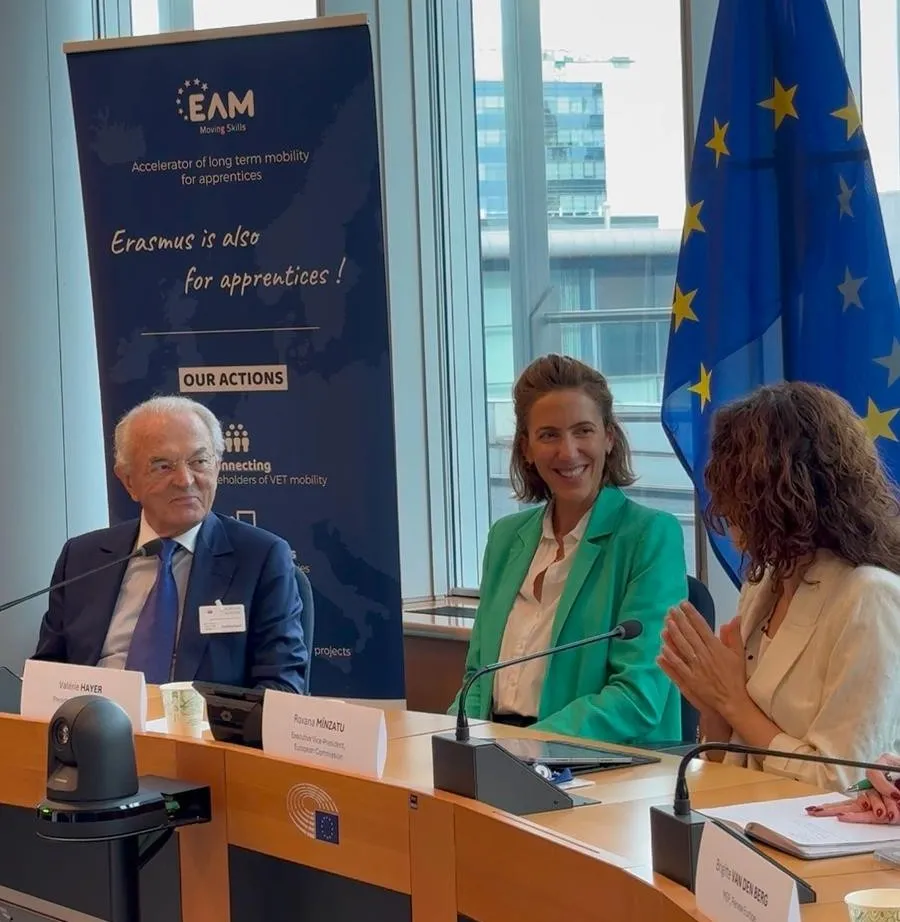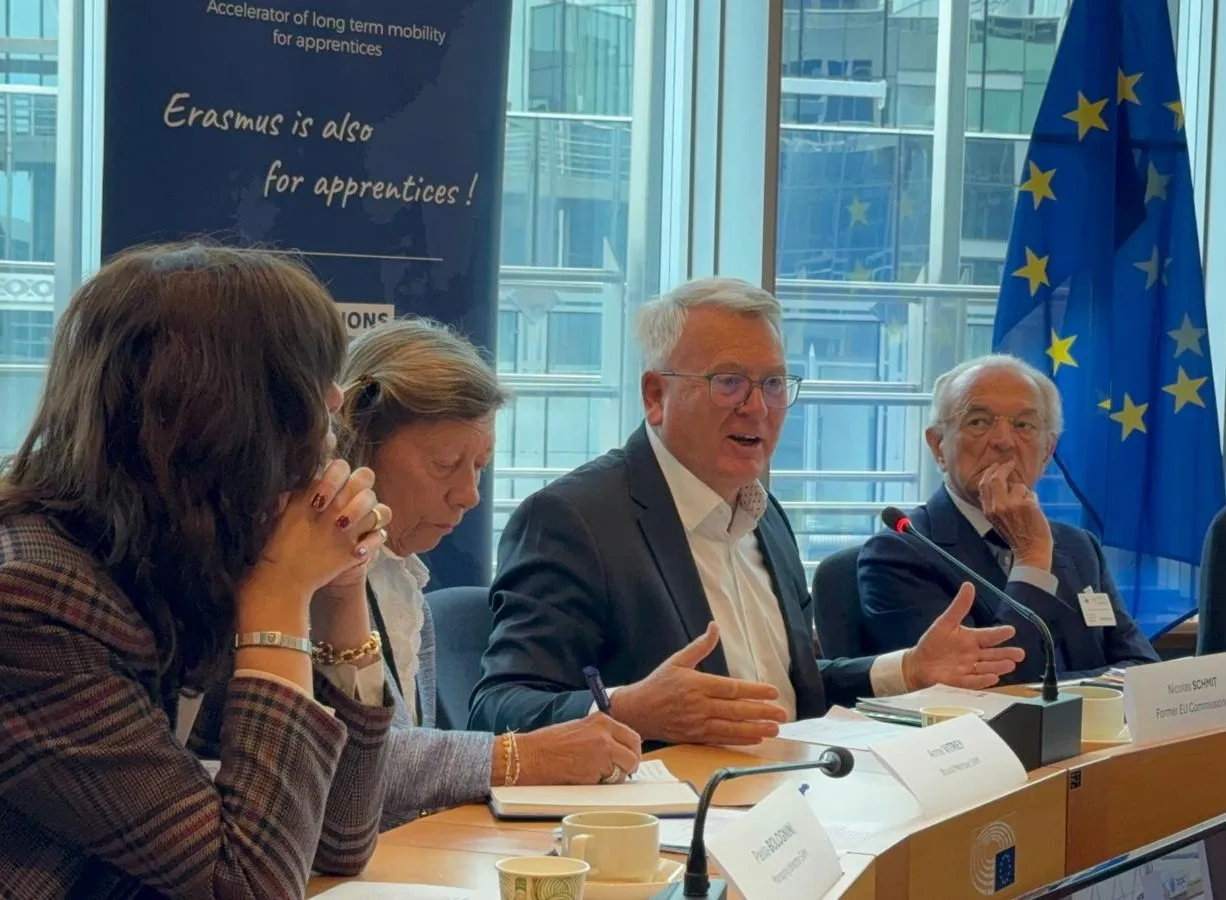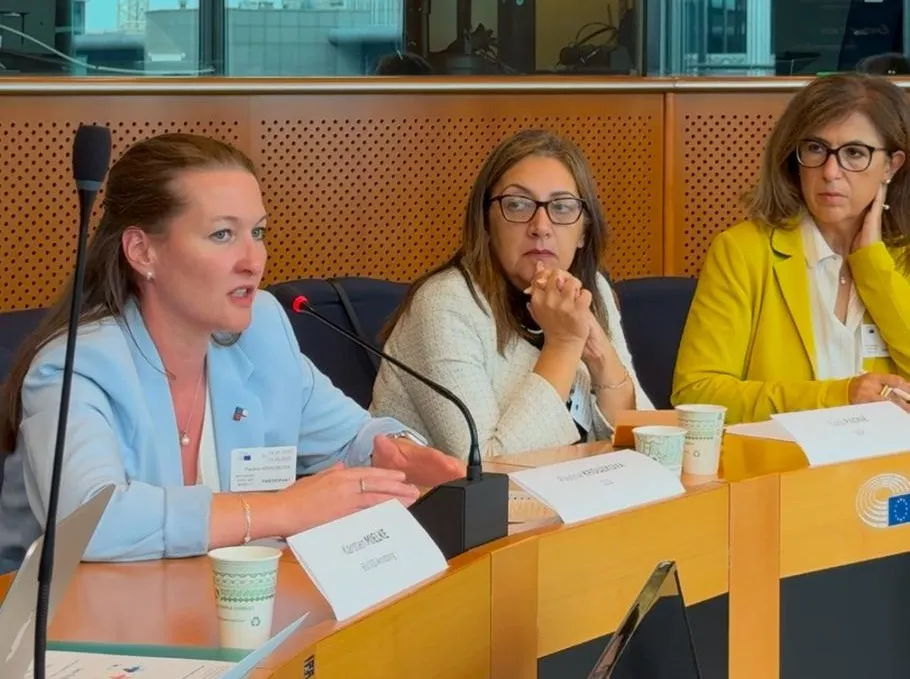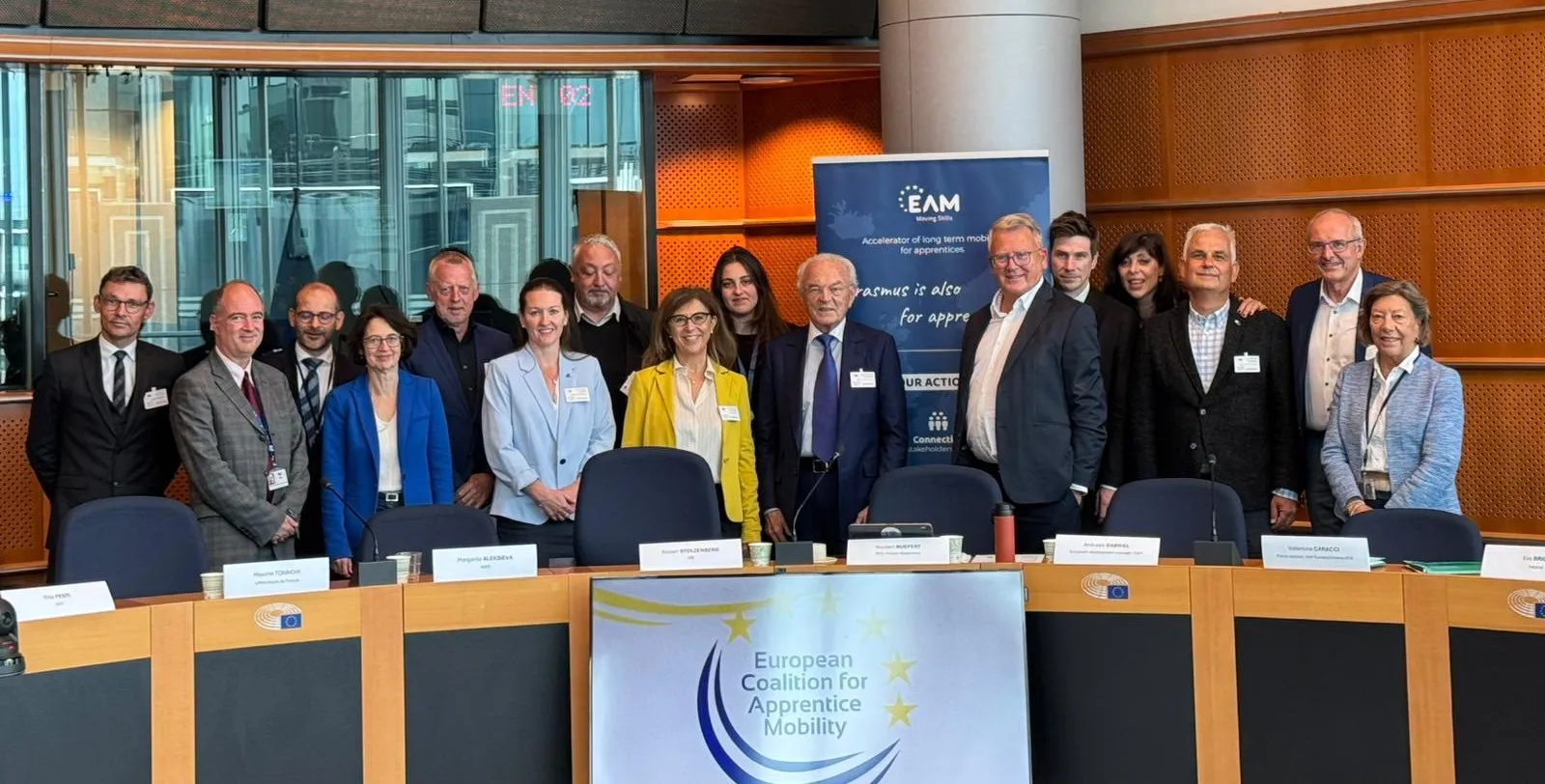After these opening remarks, coalition members took the floor to talk about their work, and its importance for apprentices. Robert Stolzenberg from Bavaria’s Institute for School Quality and Education Research gave a personal anecdote:
“Yesterday I saw a group of vocational students on a train in Stuttgart going to France. When I listened to them, this was not just a train trip to France, but a rocket trip to the moon. They were so scared, so excited. It just a complete other impact that you make if you work on vocational education.”
Coalition members then mentioned difficulties they faced while developing international mobilities. The main issues mentioned were the recognition of mobilities, the irregularity of legal frameworks, and the upcoming multiannual financial framework (MFF) of the EU.
“The legal framework is unclear – unlike France, in Italy, VET training is a regional responsibility”, highlighted Rita Festi from Italy’s Scuola Centrale di Formazione.
While the next MFF anticipates a 50% increase in Erasmus funding, coalition members and EU representatives agreed this was not sufficient to guarantee the desired expansion of international mobilities. Ms Pacaud noted that:
“While the annual budget in Erasmus+ for VET been in increasing since 2021, the demand has largely exceeded the budget available”, she said. “We must ensure that every learner who wishes to go on a mobility can do so.” .
Pavlina Krouzkova from Erasmus+ Czechia added that:
“If you compare the MFF of 2028-2034 to the last one, the share of budget allocated to Erasmus is smaller”.
In response to these concerns, Commissioner Mînzatu reaffirmed her support for the mobility of VET learners and apprentices:
“We work with colleagues from the Parliament so that we have a big budget overall, and the biggest possible for Erasmus as well”, she said. “Count on me be a strong supporter of VET, of improving the situation of apprentices and of their mobility”.
